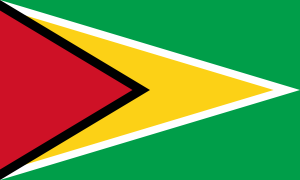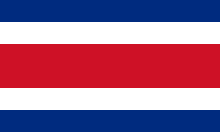Nashville Metros
 | |||
| Full name | Nashville Metros | ||
|---|---|---|---|
| Nickname(s) | The Metros | ||
| Founded | 1989 | ||
| Dissolved | 2012 | ||
| Stadium |
E. S. Rose Park Nashville, Tennessee (final) | ||
| Capacity | 5,000 | ||
| Owners |
Lynn Agee Martin Maciel Devinder Sandhu | ||
| Head Coach | Brent Goulet (final) | ||
| League | Premier Development League | ||
| 2012 (final) |
4th, South Atlantic Playoffs: DNQ | ||
| Website | Club home page | ||
|
| |||
The Nashville Metros were an American soccer team based in Nashville, Tennessee, United States. Founded in 1989, the team most recently played in the Premier Development League (PDL), the fourth tier of the American Soccer Pyramid, in the South Atlantic Division of the Eastern Conference. The Metros were the longest continuously operating soccer club in the United Soccer Leagues before their last season in 2012.
In recent years, the team played its home games at Ezell Park and E. S. Rose Park.
History

The Nashville Metros were founded by Lynn Agee and Devinder Sandhu and began indoor play in the Sunbelt Independent Soccer League in 1990. Due to a lack of facilities, the team played their entire first season on the road, before settling in Smyrna. The Metros continued to play indoors until 1996, but only managed to win six matches in six seasons. During much of the same period, the outdoor team played in the USL's amateur Premier League with significantly better results. Nashville's first winning season came in 1995 with a 12-6 record and their first playoff appearance. The 1996 team witnessed the Metros' Pasi Kinturi score a league-leading 19 goals as he was named that season's league MVP.
The Metros moved up to the second division A-League in 1997. After several years of playing at various high school and municipal stadiums in Nashville and Franklin, the team settled into their new home at Ezell Park. Nashville made their first U.S. Open Cup appearance in the 1998 tournament where they routed the third division Delaware Wizards before advancing to face the Kansas City Wizards of Major League Soccer. A heavy underdog, the Metros pulled off the upset of the tournament with a victory over the first division club in front of an ecstatic home crowd. Nashville eventually fell in the quarterfinals to MLS' Dallas Burn.
In 1999 due to financial circumstances, the club was forced to reorganize. The side was renamed the Tennessee Rhythm and moved from Nashville to Franklin, but returned to their original venue in 2001, reverting to their original name at the same time. This time period featured an unsuccessful rematch against the Dallas Burn in the 2000 U.S. Open Cup and a nationally televised game against the Los Angeles Galaxy in the 2001 tournament. In 2002 the Metros moved down from the A-League to the Premier Development League, mainly due to Ezell Park's substandard facilities, such as the lack of a press box.
Beginning with their first playoff appearance in 1994, Nashville made eight postseason trips over the next 11 years.
Players
Final roster
Source[1]
Note: Flags indicate national team as defined under FIFA eligibility rules. Players may hold more than one non-FIFA nationality.
|
|
Notable former players
- See also: All-time Nashville Metros roster
This list of notable former players comprises players who went on to play professional soccer after playing for the team, or those who previously played professionally before joining the team.
-
 Jay Ayres
Jay Ayres -
 Kainoa Bailey
Kainoa Bailey -
 Kalin Bankov
Kalin Bankov -
 Trevor Banks
Trevor Banks -
 Jon Busch
Jon Busch -
 Danny DeVall
Danny DeVall -
 Gabe Eastman
Gabe Eastman -
 Albert Edward
Albert Edward -
 John Jones
John Jones -
 Pasi Kinturi
Pasi Kinturi -
 Patrick Parker
Patrick Parker -
 Steve Klein
Steve Klein -
 Tony Kuhn
Tony Kuhn -
 Jamel Mitchell
Jamel Mitchell -
 Richard Mulrooney
Richard Mulrooney -
 J. P. Rodrigues
J. P. Rodrigues -
 Daryl Sattler
Daryl Sattler
Year-by-year
| Year | Division | League | Regular Season | Playoffs | Open Cup |
|---|---|---|---|---|---|
| 1991 | N/A | SISL | 4th, Southeast | Did not qualify | Did not enter |
| 1992 | N/A | USISL | 5th, Southeast | Did not qualify | Did not enter |
| 1993 | N/A | USISL | 6th, Southeast | Did not qualify | Did not enter |
| 1994 | 3 | USISL | 5th, Midsouth | Divisional Semifinals | Did not enter |
| 1995 | 4 | USISL Premier | 3rd, Eastern | Divisional Semifinals | Did not qualify |
| 1996 | 4 | USISL Premier | 4th, Eastern Northern | Division Finals | Did not qualify |
| 1997 | 2 | USISL A-League | 2nd, Central | Division Semifinals | Did not qualify |
| 1998 | 2 | USISL A-League | 1st, Central | Conference Quarterfinals | Quarter Finals |
| 1999 | 2 | USL A-League | 6th, Central | Did not qualify | Did not qualify |
| 2000 | 2 | USL A-League | 5th, Central | Did not qualify | 2nd Round |
| 2001 | 2 | USL A-League | 4th, Central | 1st Round | 2nd Round |
| 2002 | 4 | USL PDL | 4th, Mid South | 1st Round | Did not qualify |
| 2003 | 4 | USL PDL | 3rd, Mid South | Did not qualify | Did not qualify |
| 2004 | 4 | USL PDL | 4th, Mid South | Conference Semifinals | Did not qualify |
| 2005 | 4 | USL PDL | 5th, Mid South | Did not qualify | Did not qualify |
| 2006 | 4 | USL PDL | 5th, South Atlantic | Did not qualify | Did not qualify |
| 2007 | 4 | USL PDL | 7th, Southeast | Did not qualify | Did not qualify |
| 2008 | 4 | USL PDL | 7th, Southeast | Did not qualify | Did not qualify |
| 2009 | 4 | USL PDL | 7th, Southeast | Did not qualify | Did not qualify |
| 2010 | 4 | USL PDL | 7th, Southeast | Did not qualify | Did not qualify |
| 2011 | 4 | USL PDL | 5th, Southeast | Did not qualify | Did not qualify |
| 2012 | 4 | USL PDL | 4th, South Atlantic | Did not qualify | Did not qualify |
Indoor
| Year | Division | League | Regular Season | Playoffs |
|---|---|---|---|---|
| 1990/91 | N/A | SISL Indoor | 9th, Southeast | Did not qualify |
| 1991/92 | N/A | USISL Indoor | 4th, Southeast | Did not qualify |
| 1992/93 | N/A | USISL Indoor | 4th, Southeast | Playoffs |
| 1993/94 | N/A | USISL Indoor | 6th, Southeast | Did not qualify |
| 1994/95 | N/A | USISL Indoor | 4th, Mid South | Did not qualify |
| 1995/96 | N/A | USISL Indoor | 7th, Southeast | Did not qualify |
Honors
- USISL A-League
- Central Conference Champions (1): 1998
Head coaches
-
 Greg Petersen (1998–1999)
Greg Petersen (1998–1999) -
 Brett Mosen (2000–2001)
Brett Mosen (2000–2001) -
 Andy Poklad (2002–2004)
Andy Poklad (2002–2004) -
 Rico Laise (1999, 2007–2008)
Rico Laise (1999, 2007–2008) -
 Richard Askey (2009)
Richard Askey (2009) -
 Obed Compean (2005–2006, 2010)
Obed Compean (2005–2006, 2010) -
 Ricardo Lopez (2011)
Ricardo Lopez (2011) -
 Brent Goulet (2012–present)
Brent Goulet (2012–present)
Stadia
- Stadiums in Nashville and Franklin, Tennessee; (1990–1996)
- Stadium in Franklin, Tennessee; (1999–2000)
- Ezell Park; Nashville, Tennessee (1997–1998, 2001–2011)
- Siegel Park; Murfreesboro, Tennessee 5 games (2007–2010)
- E.S. Rose Park; Nashville, Tennessee; (2012)
Average attendance
Attendance stats are calculated by averaging each team's self-reported home attendances from the historical match archive at http://www.uslsoccer.com/history/index_E.html.
- 2005: 307
- 2006: 392 (8th in PDL)
- 2007: 361
- 2008: 308
- 2009: 162
- 2010: 215
- 2011: 349
References
- ↑ http://www.uslsoccer.com/teams/2012/22351.html#ROSTER
- ↑ http://www.etsubucs.com/sports/msoccer/rosters/displayplayer.aspx?playerid=3256
- ↑ http://www.nashvillemetrossoccer.com/index.cfm?page=team&category=roster2010&player=39
- ↑ http://www.nashvillemetrossoccer.com/index.cfm?page=team&category=roster2010&player=28
- ↑ http://www.nashvillemetrossoccer.com/index.cfm?page=team&category=roster2010&player=15
- ↑ http://www.etsubucs.com/sports/msoccer/rosters/displayplayer.aspx?playerid=2885
- ↑ http://www.niuhuskies.com/sports/m-soccer/mtt/vaziri_stefan00.html
- ↑ http://www.etsubucs.com/sports/msoccer/rosters/displayplayer.aspx?playerid=3259
- ↑ http://www.terra.com/victor_g.htm
- ↑ http://www.gocamels.com/ViewArticle.dbml?DB_OEM_ID=15300&ATCLID=204775168c
- ↑ http://www.dwu.edu/athletics/msoccer/werner_j.htm